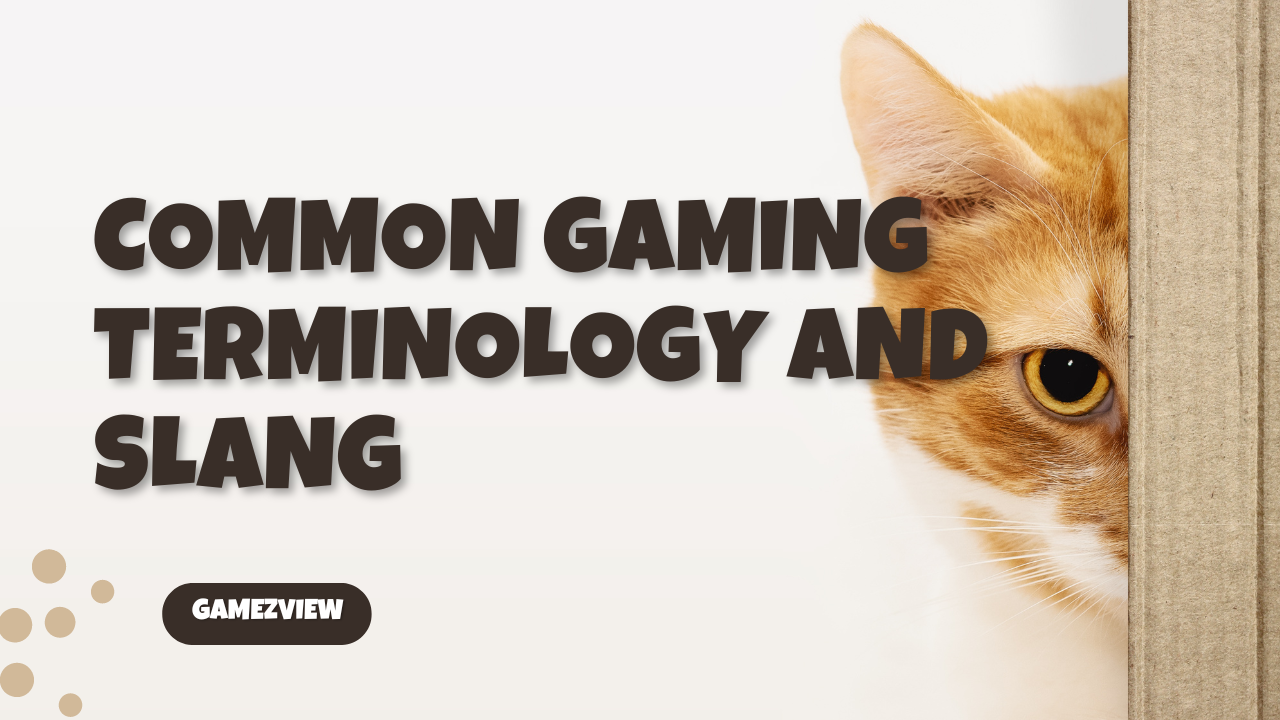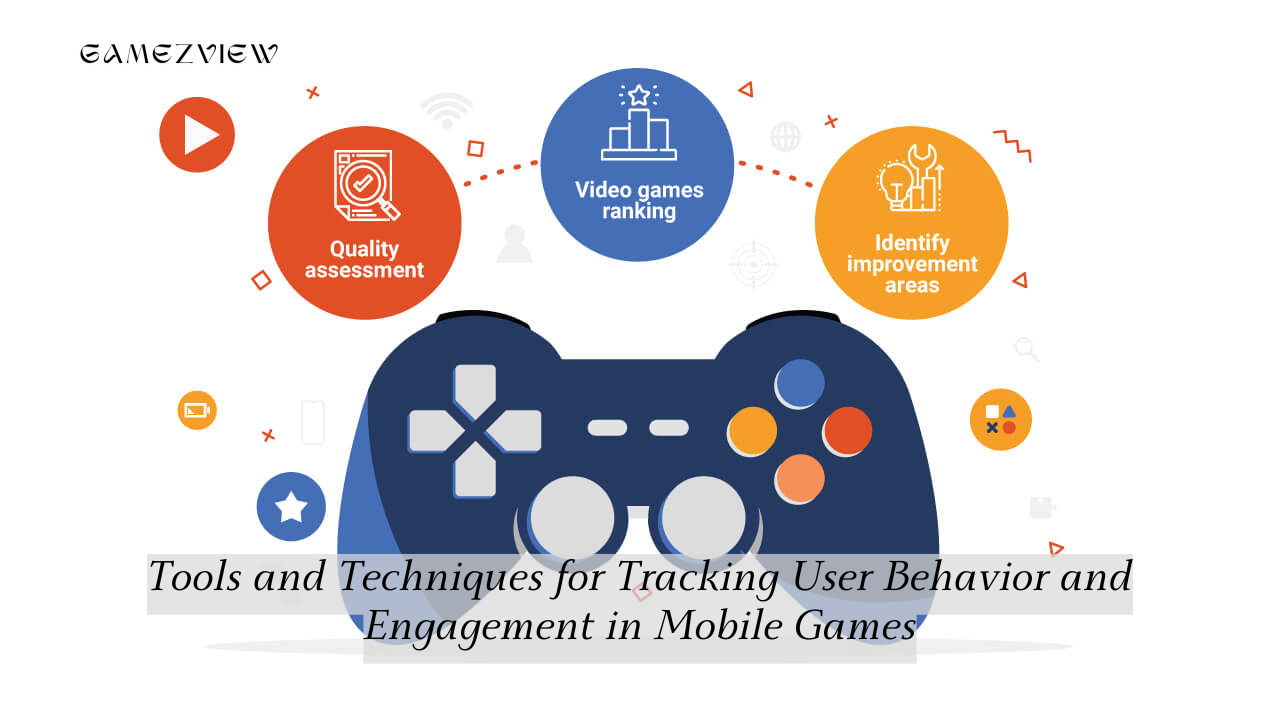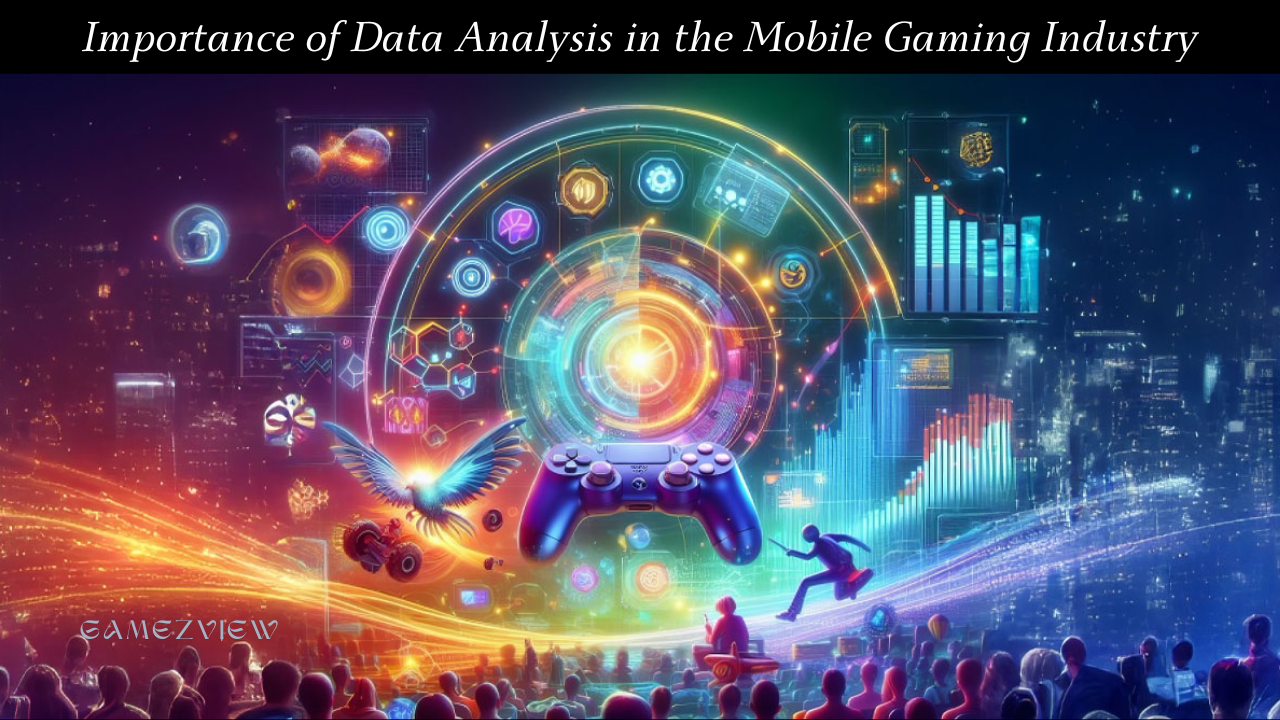In the expansive world of gaming, language and terminology form a crucial backbone that unifies players across diverse platforms and genres. Understanding this jargon not only enhances gameplay but also fosters a sense of community among gamers. From the dawn of arcade classics to the era of high-definition MMORPGs, gaming terminology has evolved, shaping the way players communicate and interact within virtual realms.
Gaming slang is more than just a series of abbreviations and acronyms; it’s a vibrant lexicon that captures the essence of the gaming culture. It encapsulates the competitive spirit, the camaraderie, and the shared experiences of millions of gamers worldwide. Whether you’re a seasoned pro or a curious newcomer, mastering this lingo is essential to fully immerse yourself in the gaming universe.
General Gaming Terms
Gameplay
Gameplay refers to the overall experience of playing a game, encompassing the rules, mechanics, and player interactions. It defines how players engage with the game world and each other, influencing the game’s replayability and overall appeal. Key aspects of gameplay include:
- Mechanics: The rules and systems that govern the game.
- Dynamics: The interactions between players and mechanics.
- Aesthetics: The emotional response elicited from the game.
Mechanics
Mechanics are the foundational rules and systems that define how a game operates. They are the building blocks that create the game’s challenges and objectives. Common mechanics in games include:
- Hit Points (HP): Represents the health of a character.
- Mana: A resource used to perform magic or abilities.
- Cooldown: The time required before an ability can be used again.
Graphics
Graphics refer to the visual elements of a game, including characters, environments, and special effects. They play a crucial role in creating immersive and engaging experiences. Types of graphics include:
- 2D Graphics: Flat images used in games like platformers and retro games.
- 3D Graphics: Three-dimensional models used in modern games for a more realistic appearance.
AI (Artificial Intelligence)
AI (Artificial Intelligence) in gaming refers to the behavior of non-player characters (NPCs) controlled by the game. AI is designed to simulate human-like behavior, providing challenges and enhancing the game experience. Key components of AI include:
- Pathfinding: How an NPC navigates the game environment.
- Decision Making: How an NPC reacts to player actions.
Platform-Specific Terms
Console
Console gaming involves playing on dedicated gaming devices like the PlayStation, Xbox, or Nintendo Switch. Consoles are known for their ease of use and exclusive game titles. Key terms include:
- Exclusive Titles: Games only available on a specific console.
- Controller: The handheld device used to interact with the console.
PC
PC (Personal Computer) gaming offers flexibility and customization, allowing players to upgrade their systems for better performance. Common PC gaming terms include:
- Modding: Modifying game files to change gameplay or add new content.
- FPS (Frames Per Second): A measure of how smoothly a game runs.
Mobile
Mobile gaming refers to playing games on smartphones and tablets. It’s known for its accessibility and diverse range of casual and competitive games. Key terms include:
- Freemium: Games that are free to play but offer in-app purchases.
- Gacha: A monetization mechanic where players spend currency for a chance to get in-game items.
Cross-Platform
Cross-Platform gaming allows players on different devices to play together. This enhances the player base and fosters a unified gaming community. Important terms include:
- Cross-Play: The ability to play with others regardless of the device they use.
- Cross-Save: The ability to transfer game progress between devices.
Game Genres and Their Specific Terminology
FPS (First-Person Shooter)
FPS (First-Person Shooter) games are characterized by gameplay from a first-person perspective, where players see through the eyes of their character. Key terms include:
- Headshot: A hit that targets the head, often resulting in higher damage.
- Killstreak: Consecutive kills without dying, often rewarded in-game.
RPG (Role-Playing Game)
RPG (Role-Playing Game) games involve players assuming the roles of characters in a fictional setting. Players make choices that affect the game’s narrative and character development. Important terms include:
- Quest: A task or mission given to the player, often with rewards.
- XP (Experience Points): Points gained by completing tasks, used to level up characters.
MOBA (Multiplayer Online Battle Arena)
MOBA (Multiplayer Online Battle Arena) games involve players controlling characters in a team-based combat setting. Key terms include:
- Lane: The path where battles occur, typically leading to the enemy base.
- Minion: AI-controlled units that assist players in combat.
RTS (Real-Time Strategy)
RTS (Real-Time Strategy) games involve managing resources, building units, and directing armies in real-time. Key terms include:
- Micro: The control of individual units to maximize their effectiveness.
- Macro: The management of resources and overall strategy.
MMO (Massively Multiplayer Online)
MMO (Massively Multiplayer Online) games feature large-scale, persistent worlds where thousands of players interact. Important terms include:
- Raid: A large-scale mission requiring multiple players to complete.
- Guild: A group of players who band together for mutual benefit.
Common Slang Across Genres
Noob
Noob is a slang term for a new or inexperienced player. It is often used in a derogatory manner but can also be a light-hearted jab among friends.
GG (Good Game)
GG (Good Game) is a term used to show sportsmanship and respect at the end of a match. It’s a way of acknowledging a game well-played, regardless of the outcome.
AFK (Away From Keyboard)
AFK (Away From Keyboard) indicates that a player is temporarily not active in the game. It’s used to communicate that a player may be unresponsive for a short time.
OP (Overpowered)
OP (Overpowered) describes a character, item, or strategy that is excessively strong, often leading to calls for a balance adjustment from the developers.
Nerf/Buff
Nerf means to reduce the effectiveness of an in-game element, while Buff refers to increasing its power. These terms are often used when discussing game balance changes.
Multiplayer Gaming Terminology
PvP (Player vs. Player)
PvP (Player vs. Player) refers to games or game modes where players compete against each other rather than against computer-controlled opponents.
PvE (Player vs. Environment)
PvE (Player vs. Environment) involves players facing challenges and opponents controlled by the game’s AI. It’s common in RPGs and MMOs.
Co-op (Cooperative Gameplay)
Co-op (Cooperative Gameplay) refers to games where players work together to achieve common objectives. It promotes teamwork and collaboration.
Clan/Guild
Clan/Guild is a group of players who come together to support each other in games. They often participate in organized activities like raids or tournaments.
Esports Terms
Meta
Meta refers to the dominant strategies or tactics in a game at any given time. Understanding the meta is crucial for competitive play as it influences which characters or strategies are most effective.
Strat (Strategy)
Strat is short for strategy, referring to the planned approach or tactics a team uses to win. Developing and executing effective strats is key in competitive gaming.
Frag
Frag is a term originating from first-person shooters, meaning to kill an opponent. It’s commonly used in the context of competitive play to discuss kills.
Scrim
Scrim is short for scrimmage, referring to a practice match between teams. Scrims are essential for teams to refine their strategies and improve their skills.
Streaming and Content Creation Terms
Stream Sniping
Stream Sniping is when players watch an opponent’s live stream to gain an unfair advantage. It’s generally frowned upon and can lead to penalties.
Raid
Raid in streaming refers to a streamer sending their viewers to another stream at the end of their broadcast. It’s a way to support fellow streamers and build community.
Sub
Sub is short for subscription, where viewers support a streamer financially on platforms like Twitch. Subscribers often receive benefits like exclusive emotes and content.
Donation
Donation refers to financial contributions made by viewers to support a streamer. Donations can range from small tips to significant amounts and are a major income source for content creators.
Social Interaction and Communication in Games
Emote
Emote refers to predefined expressions or actions that characters can perform to communicate with others. Emotes are used to convey emotions or reactions without typing.
Chat Commands
Chat Commands are text-based commands used in the game’s chat system to perform actions like changing settings or displaying information. They enhance communication and control within the game.
Ping
Ping in a gaming context is used to highlight a specific location or object for teammates. It’s a quick way to communicate important information without typing.
Economy and In-Game Currency Terms
Microtransactions
Microtransactions are small purchases made within a game, typically for cosmetic items, additional content, or currency. They are a common monetization strategy in free-to-play games.
Loot Box
Loot Box is a virtual item that contains randomized rewards. Players often purchase or earn loot boxes, hoping to get rare or valuable items.
Grinding
Grinding refers to repeatedly performing tasks or actions to gain rewards such as experience points, currency, or items. It’s a common aspect of many RPGs and MMOs.
Farming
Farming is the act of repeatedly harvesting resources or defeating enemies to collect specific items or currency. It’s essential for progressing in many games.
Character and Role Terminology
Main
Main refers to the character or class that a player primarily uses in a game. It’s the character they are most skilled with and prefer to play.
Tank
Tank is a character role designed to absorb damage and protect teammates. Tanks typically have high health and defense stats, making them essential for team survival.
DPS (Damage Per Second)
DPS (Damage Per Second) refers to characters or builds focused on dealing high amounts of damage. DPS roles are crucial for eliminating enemies quickly.
Healer
Healer is a character role responsible for restoring health and supporting teammates. Healers are vital for maintaining the team’s survivability during battles.
Technical Gaming Terms
FPS (Frames Per Second)
FPS (Frames Per Second) measures how many frames the game displays each second. Higher FPS results in smoother gameplay and better visual performance.
Ping (Latency)
Ping (Latency) is the time it takes for data to travel between the player’s device and the game server. Lower ping means a more responsive and lag-free experience.
Lag
Lag is a delay or slowdown in gameplay due to network or hardware issues. It can affect performance and disrupt the gaming experience.
Resolution
Resolution refers to the number of pixels displayed on the screen, impacting the clarity and detail of the game’s visuals. Higher resolution provides better image quality.
Gaming Hardware and Peripherals
Controller
Controller is a handheld device used to interact with a game, commonly used with consoles. It features buttons, triggers, and joysticks for gameplay input.
Keyboard and Mouse
Keyboard and Mouse are standard input devices for PC gaming. They offer precision and customization, making them ideal for a wide range of game genres.
Headset
Headset is used for audio output and communication in games. It allows players to hear game sounds and chat with teammates, enhancing the overall experience.
Gaming Chair
Gaming Chair is designed for long gaming sessions, offering comfort and support. Features often include ergonomic design, adjustable settings, and built-in speakers.
Development and Testing Terms
Alpha/Beta
Alpha/Beta refers to early stages of game development where the game is tested for bugs and gameplay issues. Alpha is the initial phase, followed by beta testing for broader feedback.
Patch
Patch is an update released by developers to fix bugs, improve performance, or add new content. Regular patches are essential for maintaining and improving games.
DLC (Downloadable Content)
DLC (Downloadable Content) is additional content that players can download to expand a game. DLC often includes new levels, characters, and features.
Modding
Modding involves altering or adding to a game’s content by creating custom modifications. Mods can enhance gameplay, add new features, or change the game’s appearance.
Cultural and Meme-Based Terms
1337 (Leet)
1337 (Leet) is a language style used by gamers to replace letters with numbers or symbols. It originated in hacker culture and is often used humorously in gaming.
Git Gud
Git Gud is slang for “get good,” encouraging players to improve their skills rather than blame external factors for poor performance. It’s a common phrase in competitive gaming.
Meme
Meme in gaming refers to humorous or viral content shared within the community. Memes often capture funny moments, inside jokes, or relatable experiences in games.
Gaming Abbreviations and Acronyms
RNG (Random Number Generator)
RNG (Random Number Generator) is a system that determines random outcomes in games, such as loot drops or enemy behavior. It adds unpredictability and variation to gameplay.
AoE (Area of Effect)
AoE (Area of Effect) refers to abilities or attacks that affect multiple targets within a specific area. AoE skills are essential for crowd control and dealing damage to groups of enemies.
DPS (Damage Per Second)
DPS (Damage Per Second) is a measure of how much damage a character or weapon can deal over time. It’s a critical factor in evaluating a character’s combat effectiveness.
Cheating and Exploits
Hack
Hack refers to unauthorized modifications or tools used to gain an unfair advantage in a game. Hacking is generally prohibited and can result in severe penalties.
Exploit
Exploit is the use of bugs or glitches in a game to gain an advantage. Exploiting is often against the rules and can lead to sanctions if discovered.
Cheat Code
Cheat Code is a sequence of inputs that unlocks special features or advantages in a game. Cheat codes were popular in early gaming but are less common today.
Gamer Identity and Community Terms
Casual vs. Hardcore
Casual vs. Hardcore refers to the spectrum of gamer dedication and skill. Casual gamers play for fun and relaxation, while hardcore gamers are highly competitive and invest significant time in gaming.
Pro Gamer
Pro Gamer is a player who competes in professional gaming tournaments and often earns a living from gaming. They are highly skilled and dedicated to their craft.
Streamer
Streamer is a gamer who broadcasts their gameplay live to an audience on platforms like Twitch or YouTube. Streamers engage with their audience through commentary and interaction.
Influencer
Influencer in gaming refers to individuals who have a large following on social media or streaming platforms. They shape trends and opinions within the gaming community.
Gaming Events and Conventions
LAN Party
LAN Party is a gathering where gamers connect their computers to play games together on a local area network. It’s a social event that allows for face-to-face interaction and competition.
Tournament
Tournament is a competitive event where players or teams compete for prizes and recognition. Tournaments are common in esports and can range from local events to international championships.
Expo
Expo is a large event where game developers showcase their latest products and innovations. Expos provide a platform for announcements, demos, and networking within the industry.
Cosplay
Cosplay involves dressing up as characters from games, often seen at gaming conventions and events. It’s a way for fans to express their creativity and passion for their favorite games.
Future Trends in Gaming Terminology
VR (Virtual Reality)
VR (Virtual Reality) is an immersive gaming experience where players interact with a virtual world using specialized headsets and controllers. VR is growing in popularity and shaping the future of gaming.
AR (Augmented Reality)
AR (Augmented Reality) overlays digital elements onto the real world through devices like smartphones or AR glasses. It creates interactive experiences that blend reality and virtual content.
Cloud Gaming
Cloud Gaming allows players to stream games directly from servers without the need for powerful hardware. It offers convenience and access to a vast library of games across different devices.
Gaming terminology and slang are vital elements of the gaming culture, offering a shared language that enhances communication and fosters community. From understanding game mechanics to navigating social interactions, this terminology enriches the gaming experience. As the industry evolves, so too will the language, reflecting new trends and innovations. For gamers, mastering this lexicon is not just about playing games—it’s about being part of a global community that shares a passion for virtual worlds and interactive storytelling.
FAQs
What is the importance of knowing gaming terminology?
Understanding gaming terminology is crucial for effective communication, enhancing gameplay, and fostering a sense of community within the gaming world. It allows players to engage more deeply with games and connect with other gamers.
How does gaming slang evolve?
Gaming slang evolves through player interactions, cultural trends, and technological advancements. It reflects changes in the gaming landscape, new genres, and the influence of the gaming community on mainstream culture.
What are some essential terms for new gamers?
New gamers should familiarize themselves with basic terms like noob, GG, AFK, DPS, and loot box. These terms will help them navigate the gaming world and understand common gameplay mechanics and social interactions.



